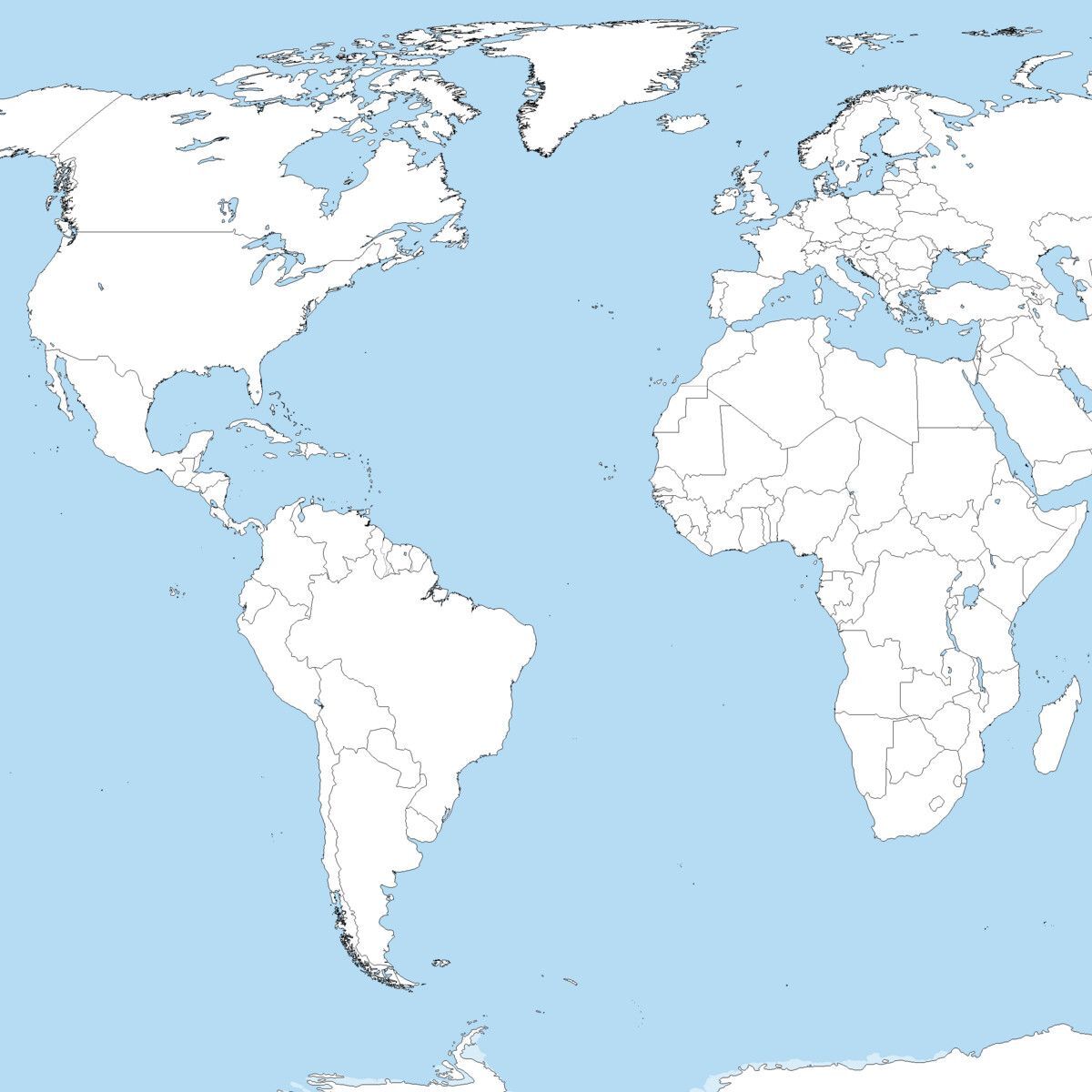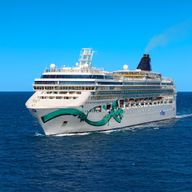

Norwegian Jade - 11/21/2026
The November 21, 2026 cruise on the Norwegian Jade departs from Incheon (seoul). South Korea. On this 9 Night Asia: Osaka Kochi Jeju & Nagoya (Seoul To Yokohama) sailing, the ship will visit a total of 10 cruise port destinations, including its departure port. The Norwegian Jade sets sail on Saturday, Nov 21st and returns on Monday, Nov 30th.
Cruise Pricing
The graph below tracks historic price of the Norwegian Jade cruise ship departing November 21, 2026. The most recent price for this sailing starts at $2,019 ($225 per night) for an Inside Cabin. Compared to the average price of $1,812 ($202 per night), this represents a recent increase of 11%.
Use the buttons below to toggle between cabin types.
Cruise Itinerary
Itinerary
Norwegian Jade - November 21, 2026 - 9 Nights
| Day | Date | Port |
|---|---|---|
| 1 | Nov 21st | Incheon (seoul). South Korea |
| 2 | Nov 22nd | Jeju City, Jeju-Do, (cheju-Do), South Korea |
| 3 | Nov 23rd | Nagasaki, Japan |
| 4 | Nov 24th | Kagoshima, Japan |
| 5 | Nov 25th | Hiroshima, Japan |
| 6 | Nov 26th | Kochi, Japan |
| 7 | Nov 27th | Osaka, Japan |
| 8 | Nov 28th | Nagoya, Japan |
| 9 | Nov 29th | Shimizu, Japan |
| 10 | Nov 30th | Yokohama (tokyo), Japan |
The Norwegian Jade sails on November 21, 2026 for a 9 Night Asia: Osaka Kochi Jeju & Nagoya (Seoul To Yokohama). The ship will depart the port of Incheon (seoul). South Korea at 3:00 PM and will return to the port of Yokohama (tokyo), Japan on Nov 30th at 6:00 AM. During the 10-day journey, the Norwegian Jade will visit 9 additional ports and will spend 0 days at sea.
Itinerary Safety Score
Based on my comprehensive research of cruise port safety information, including recent crime reports, travel advisories, Global Peace Index rankings, and specific port security concerns, we've created a "safety score" for each cruise port stop. The overall rating below represents a combined score for your specific cruise itinerary.
Cruise Ship

Norwegian Jade
NORWEGIAN JADE SIZE
The Jade has a construction date of 2006 and a total size of 93,558 gross tons. The ship measures 965 feet (294 meters) in length. Norwegian Jade is included in Norwegian’s Jewel Class. At full capacity, the Norwegian Jade holds 3,439 passengers. That includes 2,402 cruise vacationers and 1,037 staff members. The Jade total number of staterooms is 1,201.
Norwegian Jade Size & Stats
- Gross Tonnage:93,558 GT
- Length:965 ft (294 m)
- Beam:125 ft (38 m)
- Draft:27 ft (8 m)
- Max Speed:29 mph (25 kn)
- Year Built:2006
- Years Served:2006 - Present
- Capacity:2,402
- Crew Members:1,037
- Total on Board:3,439
- Total Staterooms:1,201
- Flagged Country:Bahamas
- Ship Cost:390 Million
- Status:active
To see how this compares, click through to see Norwegian Jade age and stats vs all Norwegian ships. There you’ll find graphs showing length, capacity, tonnage and more for this ship vs all in the fleet.
To check out the ship from top to bottom, click here for Norwegian Jade Deck Plans.
Cruise Ports
Incheon, South Korea, has docking at Incheon Port with excursions to Seoul. Travelers explore Gyeongbokgung Palace and Myeongdong markets. Excursions visit DMZ’s historic sites. Local markets sell kimchi. The peak season, April to June, brings mild weather. Photography captures palaces and urban skylines. Dining onboard includes bulgogi, a Korean favorite. Souvenirs, like hanbok dolls, are sold in ship shops. Briefings cover Korean history. Light layers suit the temperate climate. Comfortable shoes enhance city tours. Incheon’s access to Seoul offers a vibrant South Korean stop, blending culture with modern energy.
Jeju City, South Korea, has docking at Jeju Port. Travelers explore Seongsan Ilchulbong’s volcanic crater. Excursions visit Manjanggul Lava Tube. Local markets sell tangerines. The peak season, April to June, brings mild weather. Photography captures volcanic landscapes and coastal vistas. Dining onboard includes haemul jeongol, a seafood hotpot. Souvenirs, like lava stone crafts, are sold in ship shops. Briefings cover Jeju’s geology. Light clothing suits the temperate climate. Sturdy shoes enhance hikes. Jeju City’s volcanic beauty offers a vibrant South Korean stop, immersing travelers in its natural wonders.
Nagasaki, Japan, offers docking at Nagasaki Port. Travelers explore the Peace Park and Atomic Bomb Museum. Excursions visit Glover Garden’s colonial mansions. Local markets sell champon noodles. The peak season, March to May, brings cherry blossoms and mild weather. Photography captures historic sites and Dejima Island views. Dining onboard includes sara udon, a Nagasaki dish. Souvenirs, like castella cakes, are sold in ship shops. Briefings cover Nagasaki’s WWII history. Light layers suit the temperate climate, while comfortable shoes enhance park walks. Nagasaki’s blend of history and resilience offers a poignant Japanese stop. Cruise travelers enjoy a mix of somber memorials, colonial heritage, and scenic harbors, making Nagasaki an engaging destination for exploring Japan’s cultural and historical depth on Kyushu Island.
Kagoshima, Japan, has docking at Kagoshima Port. Travelers explore Sakurajima volcano’s active trails. Excursions visit Sengan-en Garden’s historic grounds. Local markets sell shochu. The peak season, March to May, brings cherry blossoms. Photography captures volcanic landscapes and coastal vistas. Dining onboard includes kurobuta pork, a Kagoshima specialty. Souvenirs, like ceramic crafts, are sold in ship shops. Briefings cover Kyushu’s history. Light layers suit the temperate climate. Sturdy shoes enhance volcano hikes. Kagoshima’s volcanic beauty offers a dynamic Japanese stop, blending nature with cultural heritage.
Hiroshima, Japan, has docking at Hiroshima Port. Travelers explore Peace Memorial Park and Atomic Bomb Dome. Excursions visit Miyajima’s floating Itsukushima Shrine. Local markets sell okonomiyaki. The peak season, March to May, brings cherry blossoms. Photography captures historic sites and island shrines. Dining onboard includes Hiroshima-style okonomiyaki. Souvenirs, like peace cranes, are sold in ship shops. Briefings cover WWII history. Light layers suit the temperate climate. Comfortable shoes enhance park walks. Hiroshima’s poignant history offers a profound Japanese stop, blending peace advocacy with cultural heritage.
Kochi, Japan, has docking at Kochi Port. Travelers explore Kochi Castle’s samurai history. Excursions visit Katsurahama Beach and Ryugado Cave. Local markets sell bonito flakes. The peak season, March to May, brings mild weather. Photography captures castle views and Pacific shores. Dining onboard includes katsuo tataki, a local seared tuna. Souvenirs, like yosakoi crafts, are sold in ship shops. Briefings cover Shikoku’s history. Light layers suit the temperate climate. Comfortable shoes enhance castle tours. Kochi’s coastal heritage offers a serene Japanese stop, blending samurai history with scenic beauty.
Osaka, Japan, provides docking at Osaka Port. Travelers explore Osaka Castle and Dotonbori’s vibrant food scene. Excursions visit Kyoto’s Kinkaku-ji Temple. Local markets sell takoyaki. The peak season, March to May, brings cherry blossoms and mild weather. Photography captures samurai castles and neon-lit canals. Dining onboard includes okonomiyaki, an Osaka favorite. Souvenirs, like tenugui cloths, are sold in ship shops. Briefings cover Kansai history. Light layers suit the temperate climate, while comfortable shoes enhance city walks. Osaka’s dynamic urban culture offers a vibrant Japanese stop. Cruise travelers enjoy a mix of historic landmarks, culinary delights, and modern energy, making Osaka an engaging destination for exploring Japan’s Kansai region and cultural heritage.
Nagoya, Japan, provides docking at Nagoya Port. Travelers explore Nagoya Castle and Atsuta Shrine. Excursions visit Toyota’s factory museum for automotive history. Local markets sell kishimen noodles. The peak season, March to May, brings cherry blossoms and mild weather. Photography captures samurai castles and urban skylines. Dining onboard includes hitsumabushi, a Nagoya eel dish. Souvenirs, like noren curtains, are sold in ship shops. Briefings cover Aichi’s industrial history. Light layers suit the temperate climate, while comfortable shoes enhance castle walks. Nagoya’s blend of history and modernity offers a vibrant Japanese stop. Cruise travelers enjoy a mix of samurai heritage, spiritual sites, and industrial innovation, making Nagoya an engaging destination for exploring Japan’s cultural and technological richness in the Chubu region.
Shimizu, Japan, offers docking at Shimizu Port. Travelers explore Mount Fuji viewpoints and Nihondaira’s tea gardens. Excursions visit Shizuoka’s Toro Ruins. Local markets sell wasabi. The peak season, April to October, brings mild weather for coastal tours. Photography captures Fuji’s slopes and Suruga Bay vistas. Dining onboard includes unagi, a Japanese favorite. Souvenirs, like tea crafts, are sold in ship shops. Briefings cover Shizuoka history. Light clothing and sun protection suit the temperate climate, while comfortable shoes enhance garden walks. Shimizu’s scenic charm offers a vibrant Japanese stop. Cruise travelers enjoy a mix of natural beauty and cultural heritage, making Shimizu an engaging destination for exploring Japan’s Fuji region.
Yokohama (Tokyo), Japan, offers docking at Yokohama Port with excursions to Tokyo. Travelers explore Senso-ji Temple and Shibuya Crossing. Excursions visit Kamakura’s Great Buddha. Local markets sell yakitori. The peak season, April to October, brings mild weather for city tours. Photography captures neon streets and Tokyo Bay vistas. Dining onboard includes sushi, a Japanese favorite. Souvenirs, like ukiyo-e prints, are sold in ship shops. Briefings cover Edo history. Light clothing and sun protection suit the temperate climate, while comfortable shoes enhance city walks. Yokohama’s urban gateway offers a vibrant Japanese stop. Cruise travelers enjoy a mix of historic temples and modern cityscapes, making Yokohama an engaging destination.